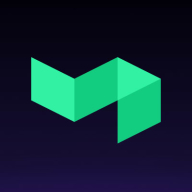

GitLab and Buildkite both compete in the continuous integration and deployment category. GitLab seems to have the upper hand due to its comprehensive dashboard and all-in-one solution that integrates well with Kubernetes.
Features: GitLab offers robust CI/CD pipeline management with features integrated for code review, deployment, and continuous integration. Its high levels of control make it ideal for managing code repositories efficiently. Buildkite excels in deployment workflows, utilizing YAML for job scheduling and emphasizing private builds and Docker layer caching, which is attractive for those using containerization.
Room for Improvement: GitLab needs better AWS and third-party integrations, enhanced project management capabilities, and improved documentation. Outages and high pricing are also user concerns. Buildkite requires better scalability and workflow representation, with challenges in debugging its DAG-based design. Improved third-party integrations and documentation would help new users.
Ease of Deployment and Customer Service: GitLab's deployment is versatile, supporting a range of cloud and on-premises environments, but specific technical support can lag. Buildkite targets public cloud deployment with simplified setup, especially for AWS users, yet has a smaller support community.
Pricing and ROI: Both platforms offer free versions with different cost structures as they scale. GitLab is known for higher pricing, particularly impacting small teams, despite offering premium features. Buildkite provides a competitive pricing model, especially beneficial for Docker-focused operations, though potentially costly for smaller setups. Each platform displays evident ROI in their respective strengths.
| Product | Market Share (%) |
|---|---|
| GitLab | 12.2% |
| Buildkite | 2.2% |
| Other | 85.6% |


| Company Size | Count |
|---|---|
| Small Business | 7 |
| Midsize Enterprise | 1 |
| Large Enterprise | 6 |
| Company Size | Count |
|---|---|
| Small Business | 35 |
| Midsize Enterprise | 9 |
| Large Enterprise | 42 |
Buildkite is a powerful CI/CD tool praised for its scalability and flexibility in automating and managing complex workflows across multiple platforms. Its integration capabilities with various systems and supports for secure, customizable environments enhance development efficiency and data privacy. The feedback highlights significant boosts in productivity and operational cost reduction, making Buildkite a strategic asset for businesses aiming to streamline development tasks and align with organizational goals.
GitLab offers a secure and user-friendly platform for CI/CD pipeline management, code repository control, and collaboration, enhancing development speed and efficiency. It facilitates automation with extensive customization and tool integration, ideal for DevOps processes.
GitLab supports source code management, version control, and collaborative development. It's frequently used in CI/CD processes to automate builds and deployments while integrating DevOps practices. GitLab allows companies to manage repositories, automate pipelines, conduct code reviews, and maintain development lifecycles. The platform supports infrastructure and configuration management, enabling efficient code collaboration, deployment automation, and comprehensive repository handling. Many organizations commit and deploy developed code using GitLab's capabilities.
What are GitLab's most valuable features?In specific industries, GitLab serves as a backbone for source code management and CI/CD implementation. Companies leverage its capabilities for infrastructure management and deployment automation, thus streamlining project delivery timelines. Its ability to handle configuration management and code repositories effectively aids in maintaining development lifecycles, making it a preferred choice for organizations committed to enhancing their DevOps practices.
We monitor all Build Automation reviews to prevent fraudulent reviews and keep review quality high. We do not post reviews by company employees or direct competitors. We validate each review for authenticity via cross-reference with LinkedIn, and personal follow-up with the reviewer when necessary.